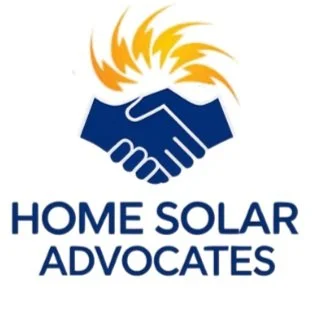Fraud & Deceptive Practices in the Solar Industry: What Homeowners Need to Know
The solar industry has experienced tremendous growth over the past decade, with millions of homeowners making the switch to clean, renewable energy. However, this rapid expansion has unfortunately attracted bad actors who prey on unsuspecting consumers through fraudulent schemes and deceptive practices. Understanding these tactics is crucial for protecting yourself and making informed decisions about your solar investment.
Common Types of Solar Fraud
Door-to-Door Scams
One of the most prevalent forms of solar fraud involves aggressive door-to-door sales tactics. Scammers often pose as representatives from utility companies or government programs, claiming homeowners are "pre-approved" for free solar installations. They create artificial urgency by stating the offer expires immediately, pressuring homeowners to sign contracts on the spot.
Red flags to watch for:
Claims of "free" solar systems
Pressure to sign immediately
Requests for upfront payments
Vague or missing company information
Promises that seem too good to be true
Misleading Savings Claims
Deceptive solar companies often exaggerate potential savings by using inflated electricity rates or unrealistic production estimates. They may claim your system will eliminate your electric bill entirely without considering factors like seasonal variations, system degradation, or changes in energy usage patterns.
Fake Government Programs
Scammers frequently impersonate government agencies or create fictitious programs offering "free" solar installations. They may claim to represent federal tax credit programs or state incentives, using official-sounding names and fake documentation to appear legitimate.
Contract Deceptions and Hidden Costs
Bait-and-Switch Pricing
Some companies advertise low prices to attract customers, then inflate costs through hidden fees, unnecessary add-ons, or equipment upgrades. The final contract may bear little resemblance to the initial quote, leaving homeowners locked into expensive agreements.
Predatory Financing Terms
Deceptive financing arrangements can trap homeowners in unfavorable loans with:
High interest rates disguised as "promotional" offers
Escalating payment structures
Prepayment penalties
Personal guarantees that put homes at risk
Lease Complications
Solar lease agreements often contain problematic clauses that:
Make it difficult to sell your home
Include automatic rate increases
Require expensive system removal fees
Transfer liability to new homeowners
Equipment and Installation Fraud
Substandard Equipment
Some fraudulent companies use inferior or counterfeit solar panels and inverters that fail prematurely or don't meet safety standards. This equipment may void warranties and create safety hazards.
Unlicensed Installation
Proper solar installation requires licensed electricians and compliance with local building codes. Fraudulent companies may use unlicensed workers or skip required permits, creating safety risks and potential legal issues.
Phantom Installations
In extreme cases, scammers collect payments for solar systems that are never installed, leaving homeowners with nothing but debt and damaged credit.
How to Protect Yourself
Research Before You Buy
Verify company credentials and licensing
Check Better Business Bureau ratings
Read online reviews from multiple sources
Confirm manufacturer warranties and equipment specifications
Get Multiple Quotes
Obtain at least three written estimates
Compare system specifications, not just prices
Ensure quotes include all costs and fees
Verify production estimates with independent calculators
Understand Your Contract
Read all documentation carefully
Ask questions about unclear terms
Have contracts reviewed by independent professionals
Never sign under pressure
Verify Financing Terms
Understand all loan terms and conditions
Compare financing options from multiple sources
Calculate total cost over the loan term
Beware of zero-down offers with hidden costs
Red Flags That Signal Potential Fraud
High-pressure sales tactics
Requests for full payment upfront
Door-to-door solicitation
Claims of limited-time government programs
Prices significantly below market rates
Reluctance to provide references or credentials
Promises of immediate installation
Contracts with blank spaces or missing information
What to Do If You've Been Scammed
If you believe you've been victimized by solar fraud:
Document everything - Keep all contracts, communications, and payment records
Contact authorities - Report to local consumer protection agencies, state attorney general, and the Federal Trade Commission
Seek legal advice - Consult with attorneys specializing in consumer protection
Contact your bank - If you've made payments, work with your financial institution to explore options
File complaints - Report to the Better Business Bureau and relevant licensing boards
The Importance of Due Diligence
The solar industry offers legitimate opportunities for homeowners to reduce energy costs and environmental impact. However, the complexity of solar contracts and financing makes it essential to approach any solar purchase with careful consideration and professional guidance.
Before signing any solar agreement, consider having your proposal reviewed by an independent solar consultant who can verify system specifications, analyze financial projections, and identify potential red flags in contract terms.
Conclusion
While solar energy represents a valuable investment for many homeowners, the industry's rapid growth has created opportunities for fraudulent actors. By understanding common scams, recognizing red flags, and conducting thorough due diligence, you can protect yourself from deceptive practices and make informed decisions about your solar investment.
Remember: legitimate solar companies will provide detailed information, allow time for consideration, and welcome questions about their products and services. If something feels wrong or too good to be true, trust your instincts and seek independent verification before proceeding.
The path to solar energy should be transparent, educational, and empowering – not pressured, confusing, or deceptive. Take the time to understand your options, and don't hesitate to seek professional guidance when evaluating solar proposals.
